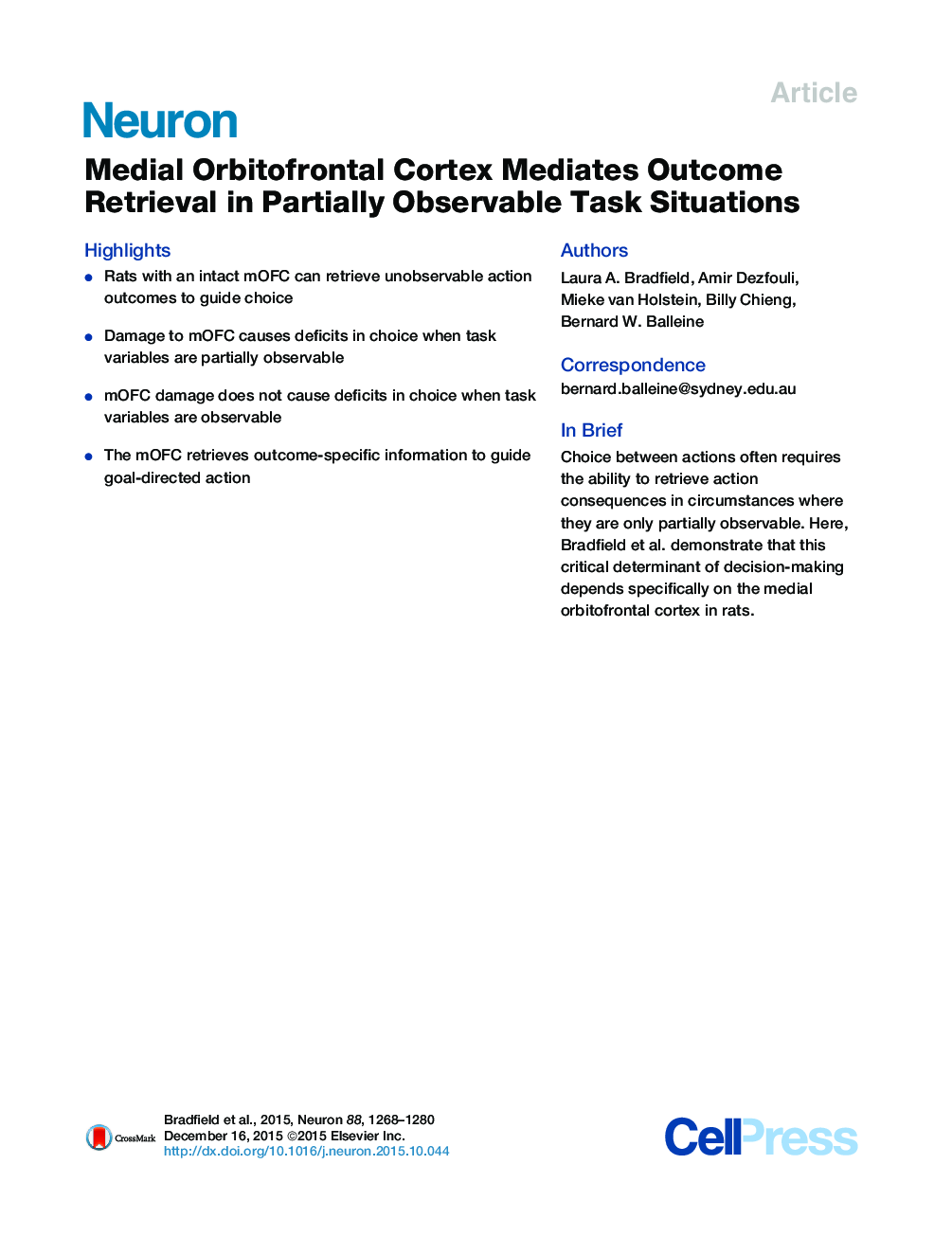| Article ID | Journal | Published Year | Pages | File Type |
|---|---|---|---|---|
| 4320761 | Neuron | 2015 | 13 Pages |
•Rats with an intact mOFC can retrieve unobservable action outcomes to guide choice•Damage to mOFC causes deficits in choice when task variables are partially observable•mOFC damage does not cause deficits in choice when task variables are observable•The mOFC retrieves outcome-specific information to guide goal-directed action
SummaryChoice between actions often requires the ability to retrieve action consequences in circumstances where they are only partially observable. This capacity has recently been argued to depend on orbitofrontal cortex; however, no direct evidence for this hypothesis has been reported. Here, we examined whether activity in the medial orbitofrontal cortex (mOFC) underlies this critical determinant of decision-making in rats. First, we simulated predictions from this hypothesis for various tests of goal-directed action by removing the assumption that rats could retrieve partially observable outcomes and then tested those predictions experimentally using manipulations of the mOFC. The results closely followed predictions; consistent deficits only emerged when action consequences had to be retrieved. Finally, we put action selection based on observable and unobservable outcomes into conflict and found that whereas intact rats selected actions based on the value of retrieved outcomes, mOFC rats relied solely on the value of observable outcomes.
